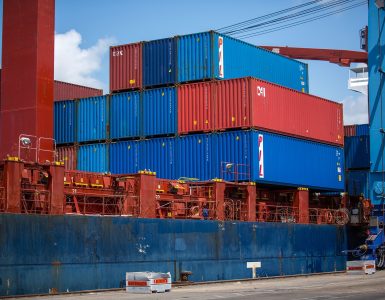A new analysis by Arizona economist Jim Rounds paints a bleak picture for the state’s economy should President Trump’s proposed tariffs on Mexican imports become a reality next week.
The analysis, prepared for the Arizona Chamber of Commerce and Industry, notes a 5 percent tariff increment would equal 6,000 job losses in Arizona. If the tariffs are fully implemented within five months, the cost to Arizonans would increase to approximately $300 per person with job losses totaling 30,000.
“This assessment of the impact of tariffs on Mexican imports is serious, but unfortunately it’s not unexpected,” said Glenn Hamer, president and CEO of the Arizona Chamber of Commerce and Industry, which commissioned the analysis. “These findings are consistent with a similar analysis by the U.S. Chamber. These new tariffs would weaken our economic growth and cost jobs.”
Last year, Arizona imported approximately $9 billion worth of goods from Mexico, ranging from agricultural and food products to high-value computer and electrical equipment. The variety of these imports will create short term impacts and longer-term changes in purchasing behavior.
“In the short term, the cost burdens from tariffs are passed on to consumers and importers,” said Rounds in the analysis. “Over a longer period of time, consumers and businesses will shift their behavior in favor of more affordable goods from other countries and the economic impact is lessened. This will not happen when trade disputes occur with multiple countries at the same time.”
Last week, President Trump announced tariffs on imported goods from Mexico to the U.S. that amount to about $350 billion a year in response to the migrant crisis at the border. If Mexico can stop or slow the stream of migrant caravans to U.S. borders to a level the president finds satisfactor, the tariffs will end. If not, trade taxes will rise 5 percent every month until they reach 25 percent in October.
Luis Ramirez, president and CEO of consulting firm Ramirez Advisors Inter-National, said that the reported impact is what many feared.
“I think that the repercussion of tariffs is that someone has to pay for it,” Ramirez said. “The second issue is that companies facing higher cost structures have to make decisions, and those decisions are, ‘do I pass that onto my buyer/consumer, or do I absorb part of that?’ Right now, we see a mad rush of anything that was ready to be shipped that was waiting for next week is being shipped this week. They’re hoping to avoid tariffs going into place on Monday.”
Although Arizona’s economy has been booming for the past few years, Rounds warns that a prolonged tariff war with Mexico could change the trajectory of the state’s economic climate.
“The job losses do not account for the fact that if this is long-lasting, it will also reduce our rate of growth,” Rounds said. “However, if it gets resolved sooner than later, the Arizona economy is strong and can withstand short-term shocks like this. But it’s not so strong that it can withstand it over a long period of time.”
















Add comment